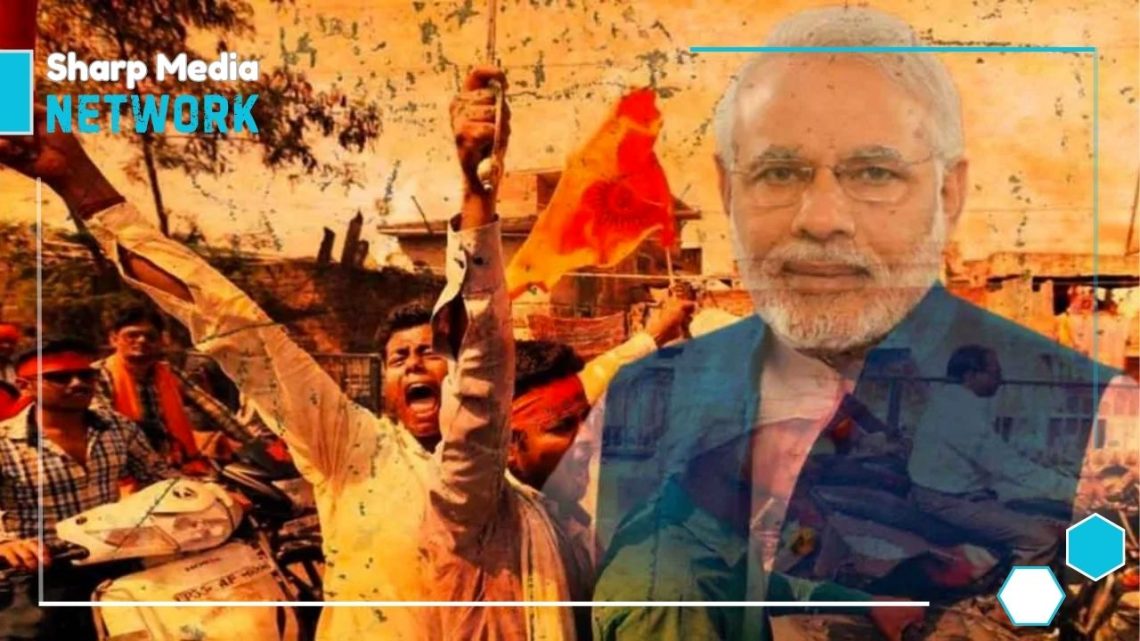
Alarming HRVs in India and IIOJK Under BJP Government
January 20, 2025A recent report by Human Rights Watch exposes severe violations of human rights in India and occupied IIOJK, highlighting rising violence, discrimination, and governmental suppression under Prime Minister Narendra Modi’s government.
India’s northeastern state of Manipur has been engulfed in ethnic violence since May 2023, leaving over 200 people dead and displacing more than 60,000 individuals. The situation in Indian Illegal Occupied Jammu and Kashmir (IIOJK) has also deteriorated, with 40 violent incidents reported between May and September 2024, resulting in 18 civilian deaths and 39 suspected militants killed. Despite claims by the Indian government of restoring peace, local elections held in September 2024 contradicted these statements, signaling ongoing unrest.
2024 witnessed a sharp rise in religious and caste-based violence in India, particularly targeting Muslims and Dalits. In Haryana, a Muslim migrant worker was lynched over beef rumors, while a 72-year-old Muslim man was beaten on a train in Maharashtra. BJP-led states continued demolishing Muslim homes under “bulldozer justice,” bypassing legal processes.
Dalit communities also faced severe violence, including the forced consumption of urine by a 15-year-old Dalit boy in Uttar Pradesh and the rape of a Dalit nurse in Madhya Pradesh by a doctor. Instances of police brutality against Dalits, such as physical assaults in Madhya Pradesh, further underscore the systemic discrimination they face.
The report highlights disturbing trends in law enforcement abuses. In the first nine months of 2024, there were 121 deaths in police custody, 1,558 deaths in judicial custody, and 93 extrajudicial killings. The Armed Forces (Special Powers) Act (AFSPA), which grants security forces in IIOJK and northeastern states immunity from prosecution, remains a key factor in perpetuating impunity for such abuses.
India’s record on civil liberties continues to worsen. The country topped the global charts for internet shutdowns, disproportionately affecting marginalized communities. The government targeted organizations such as the Centre for Policy Research and World Vision India using restrictive laws like the Foreign Contribution Regulation Act (FCRA). Press freedom also faced severe curbs, with journalist Aasif Sultan facing rearrest after spending over five years in detention. Several critical websites and foreign journalists were blocked or denied visas, signaling a tightening grip on freedom of expression.
Women’s rights in India remained under threat, with the brutal rape and murder of a doctor in Kolkata highlighting the persistent dangers women face in workplaces. Despite legal safeguards, enforcement remains inadequate. Meanwhile, the condition of disabled individuals in government shelters also raised alarm. In Delhi, 14 residents of a government-run shelter died in just 20 days, exposing the neglect faced by vulnerable groups.
Rohingya refugees continued to face arbitrary detentions and restrictions, while the government pushed forward with the controversial Citizenship Amendment Act (CAA), which further marginalizes Muslim minorities. The issuance of citizenship certificates under this law has sparked widespread concern about discrimination against non-Hindu communities.
The international community has voiced strong opposition to the Indian government’s human rights record. The European Parliament condemned the discriminatory policies targeting minorities, while Canada and other nations accused Indian intelligence agencies of engaging in extrajudicial operations abroad. Human rights experts warn that these violations signal a troubling erosion of democratic values in India, urging global intervention.
The situation in India and Indian Illegally Occupied Jammu and Kashmir in 2024 reveals a disturbing trend of escalating violence, systemic discrimination, and repression of civil rights. The international community must remain vigilant in calling for accountability and justice.

